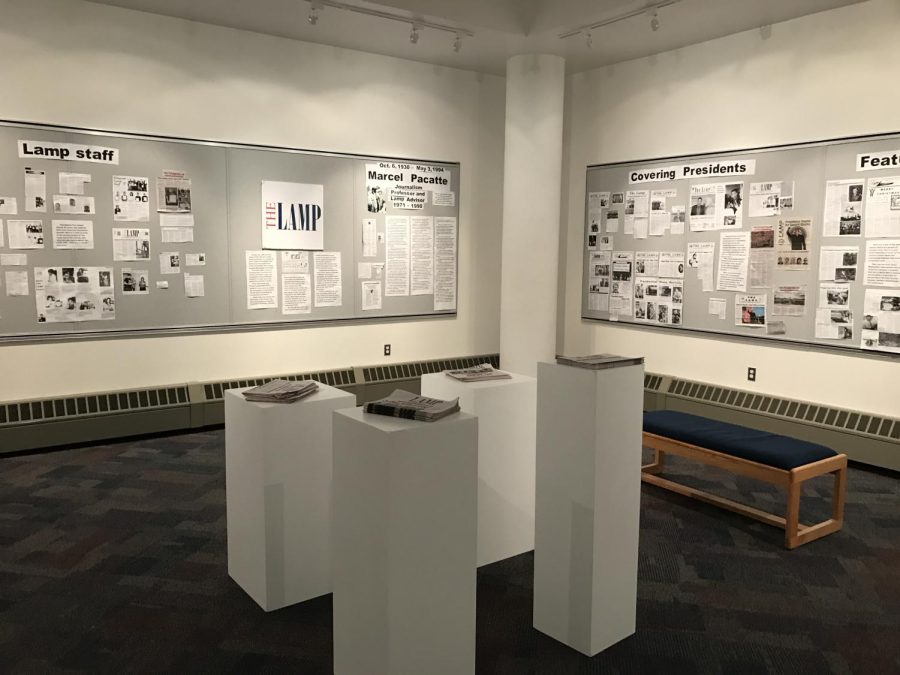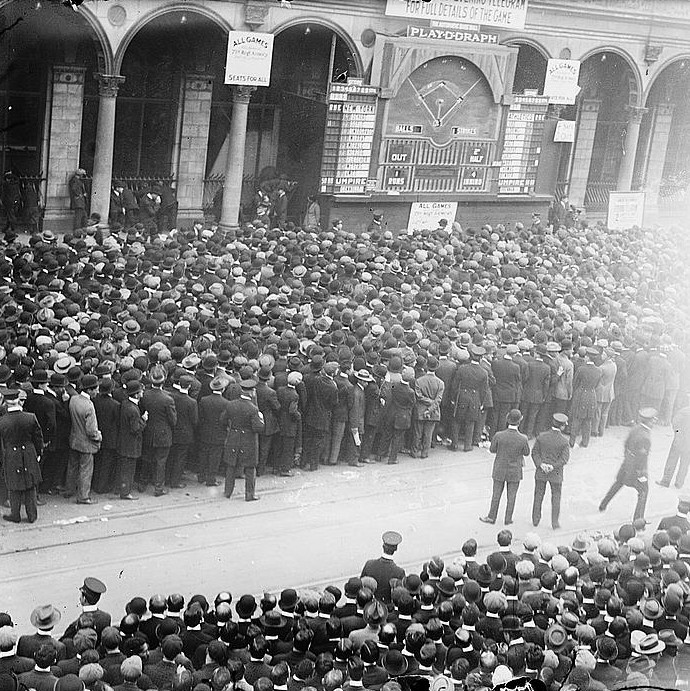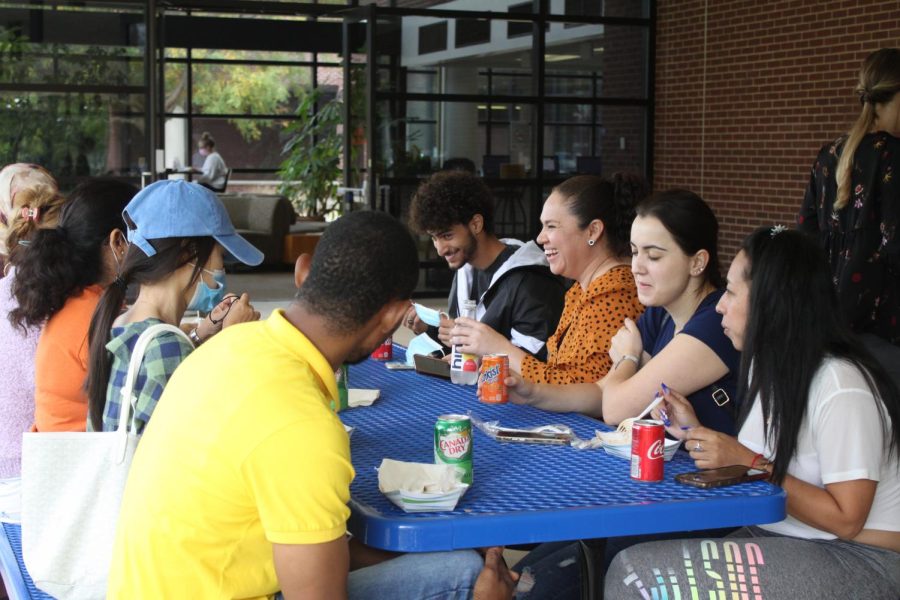By Edward Gerson,EF
Lamp staff
SPRINGFIELD – It was 11 p.m. and time to go to work. I struggled to get up and stumbled out of bed – my nightly routine. I’d return the next morning, force myself to relax, try to erase from my mind what I had witnessed. I’d draw the curtains and the blinds then close my eyes. But no matter how tired I was, I could only drift off to sleep when the evening sun went down and I would have to get up.
I spent two-and-a-half years like this from 1972 through nearly most of 1974 when I worked as an Inpatient Admitting Officer on the midnight shift at a large South Side hospital in Chicago. I had taken the job because I was desperate for money and the hospital needed someone right away to replace a guy who’d just quit after only two weeks.
It was a quiet night at that hour, practically no traffic except for a stray car or two, the air warm, humid, muggy, the moon large, low in the sky. I wondered as I walked down 55th Street what would await me this time: what horror, tragedy, comedy?
My co-workers Lenny and Jim were gossiping as usual when I got to the Admitting Office. Lenny was in his 60s, tall and gaunt, wearing steel rimmed spectacles he was always pushing back. He was a lonely man and had never married. Grief and depression had hollowed him out. First, one brother had died felled by a stroke, then another one slowly weakened away by a series of heart attacks, and finally, his 92-year-old mother. He would watch her sometimes as she slept in her armchair, he told me later, waiting to see when her breathing would stop – until one night it did.
He had been a bookkeeper for a number of years and brought his craft to the midnight shift. His handwriting was a model of fine precision as he passed his pen from one input field to the next, pressing the ballpoint firmly into the admissions contract. When I first started, he was very clear: “I can train you or he can,” he said, pointing to Jim who had fallen asleep slumped next to a tumbled heap of folders, “It’s your choice.”
He was right, but I couldn’t fault my other partner either. Jim had a family to care for and support, and worked two other jobs beside this one. He helped convicts transition back into society.
“You know what their problem is, Gerson?” he’d say. “Keeping them from going back. You’ve got rights; they don’t. Who’s going to give a job to a convicted felon, huh? You? Who? You can vote. They can’t. And, on top of that, they’re black. Three strikes. What chance they’ve got, you tell me?”
Afterwards, when I had left my job in the ER, people would ask me what was it like working that shift? What did you see, what did you feel?
“Like riding a tiger,” I’d answer.
There was nothing like it: the nervous, twitchy anticipation I’d feel approaching the ER door, the adrenaline rush when I’d entered the room, the way my brain catch fire, while on a separate level, I would be focusing down, down, making sure I got all the facts for the contract, making sure to get the patient’s name, his address, and his insurance – always the insurance plus the doctor’s signature.
And to be honest about it, I got to mention that the hospital was shot through with sex, a place nearly bursting with erotic energy. How could it be otherwise? Midnights, it was practically unavoidable. I mean, everything flowed towards it like water rushing to a bathroom drain. Because death was always present: in the silent halls, the slow, rhythmic pumping hiss of the respirators, the pulsing beep-beep of the monitors in the ICU with blinking lights, the subdued talk between nurses and doctors as they conferred. Plus, the sick, no modesty there: the bare skin, sometimes mottled, sometimes clear, the naked, nearly translucent flesh beneath the sheets, the fluids: blood, urine, mucus, spit; stark, raw, in-your-face, and feelings, emotions, stark and brutal as well: pain—both physical and emotional – grief, tears. Sex was the only weapon we had, the only way to fight back, the only way we could prove that – no! I’m not dead yet. It was the life force, that elusive, incontrovertible testament that we were alive, proof that we were not that doll-eyed man facing upwards from a pillow staring at the ceiling his only breath coming from a tube.
Plus, there were nurses all over the place, some men – a few – but mostly women in the ER, walking the floors, watching the monitors in the ICU. I may sound sexist. You can accuse me of being a male chauvinistic pig, but the place had women everywhere, every color, every size and shape you can imagine: white, Black, Asian-American, tall, petite, heavy, thin, dressed in blue, green, pink, or floral smocks. A guy couldn’t help himself.
Jim was always flirting with this one or that. I think he had lady friends throughout the place, how serious I never knew. Every once in awhile I would catch him whispering to a nurse, leaning nonchalantly against a wall, at a desk, next to an ER gurney, in the OR, the breakroom. I never asked him about it, what was he doing, what was going down. And he never said.
Lenny too. Everyone knew he was a drunk. It was common knowledge. He’d show up for shift, bleary-eyed, dragged out, sucking on lozenges to sweeten his breath, then disappear for hours, sometimes the entire night. No one knew where he’d gone. But after his mother died, he grew worse. He simply went to pieces. That was when Ruth started coming by. Although she had stopped to talk and flirt with him before sometimes, she could see like we all could, that he was melting down. So she took over, stepped in. One night when Jim and I were alone, he told me, whispering, practically conspiratorial in my ear: “He’s shacked up with her.”
“Ruth?” I said, “with Lenny?”
“Yeah,” Jim said, “how about that?”
He said Lenny was selling his mother’s place to take a room in Ruth’s basement. “But that’s a load of bullshit. They’ve had the hots for each other ever since she started coming round.”
But for me, it was Jenny.
“I hear the mermaids calling,” I would say, “each to each.” Lenny and Jim would look at me as though I had lost my mind. “But I do not think they call to me,” and with a stage flourish, I took off. Even now, after all this time, a marriage of over 30 years and a daughter grown, I still think about Jenny, although how much is memory, how much made up, I can no longer tell. Jenny worked the midnight shift like me although like many of the other nurses – not all – she rotated nights so I could never be sure when she’d be at her post on 3rd-East. I first spotted her when I was putting out the nurses’ time cards, sitting at her desk, filling out reports. After that, I couldn’t get her out of my head. I would saunter up to her floor on breaks, hoping she’d be there. She was a small, petite woman in her early 30s, with a soft, lush body her pink uniform accented rather than concealed. She had long, curly, black hair that rained down her back and large, brown eyes. I treasured those moments when I watched her as she’d yawn and stretch or rise, turn and lift her arms to take a glass or cup from the pantry or absently twist a lock of hair. She was a woman totally secure of herself, assertive, perceptive of others, and me, and could be brutally honest. We’d flirt with one another, banter, argue about this or that. She’d cover my hand with hers to emphasize some point or other and I would simply cave in.
I lusted for her, I admit it, but after a while, that feeling changed, turning into something harder, but softer too, something I didn’t understand until much, much later.
“So you’re leaving?” Jenny said.
“Yes,” I replied, sitting down. “I can’t stay here, Jen. I’m burned out. There’s hardly anything left of me. My weight’s down, I have trouble sleeping, eating. If I hadn’t decided to go – I don’t know – I might have packed it in, taken pills, jumped off a bridge.” I shrugged.
“Where are you going?”
“I got this job on a healthcare magazine, something to do with quality assurance. I put together my education and the time I spent here, drafted a resume and shopped around until I found something. It wasn’t easy and I had help.”
“Good,” Jenny said.
“Good?”
“Oh yeah, if you had stayed here with us, you’d be toast and nobody would have cared or given a crap. You would have wound up like the others” – she waved her hand in the air – “you know, the hangers-on, the forever crowd, working for the university, dreaming about the day they get their PhDs.’ , how they’re going to teach somewhere, someday, and get tenure, while they’re here, nothing, nowhere, nobody.”
“Maybe so,” I replied, “but I still can’t shake it, Jenny. I mean I never got it, the degree. All that work I put in, all that money: my own, my parents, even my GI Bill. I was accepted to candidacy, Jenny, and then I couldn’t write the goddamned dissertation! I nearly had a nervous breakdown.”
“So what?” Jenny said. “Stop whining, for Christ’s sake!” She was angry. “Stop blaming yourself, feeling guilty, feeling ashamed isn’t going to change anything, somehow make things better. Besides, it doesn’t matter.”
“It doesn’t?”
“Nah.” She shook her head. “You’re not like us, Gerson. You’re a poet – you know, one of those strange, fuzzy little creatures who walk around, moon-eyed, staring off into space, constantly thinking about things. You see stuff others don’t. You feel things others can’t. Plus, you’re smart and know all there is to know about books and literature and….” She waved her hand again.
For the first time in my life, I was at a loss for words. A silent minute passed, then another. I stood up. It was time to go, to say goodbye.
“Jenny,” I said, “I’ve got to get back. Since this is my last night, could I have a hug?”
She didn’t say anything but rose from her chair and crossed to me, holding out her arms. And then I did something I had ached to do. I pulled her to me, and rested my head on her shoulder, my face nestled against her neck. I was afraid she’d push me away but she held me close instead, and raising her arm, turned my face and kissed me hard on the lips.
“Wow, Jenny!” I said.
“Simmer down, cub scout, relax. You know, someday, somewhere, you’ll meet someone who’ll understand you, and protect you, because God knows you’re going to need it. You’re angry, Ed, angry with yourself, angry with others, angry at the world and filled with hurt. She’ll have to be a virtual lioness.”
I headed towards the elevator, turned. “I’ll never forget you, Jen.”
“Yes, you will,” she said. “You won’t have time to think about me – or us – or this place. You’ll be too busy writing books.”
And so I left, left the midnight shift, the hospital, the university, even Chicago, settling down in Springfield, and after a lifetime of work, I retired to register just like you at Lincoln Land, sitting next to you, or in front, or behind, listening to the teachers, taking notes, asking questions, offering an opinion.
Is there a moral here? If there is, it’s certainly not “follow your dream” or “believe in yourself” – none of that crap you hear on TV or see on the Internet. It’s only this, my friend: life’s not a straight path, but a winding road and you’ll never know whom you’ll meet along the way.
Edward Gerson can be reached at [email protected]





